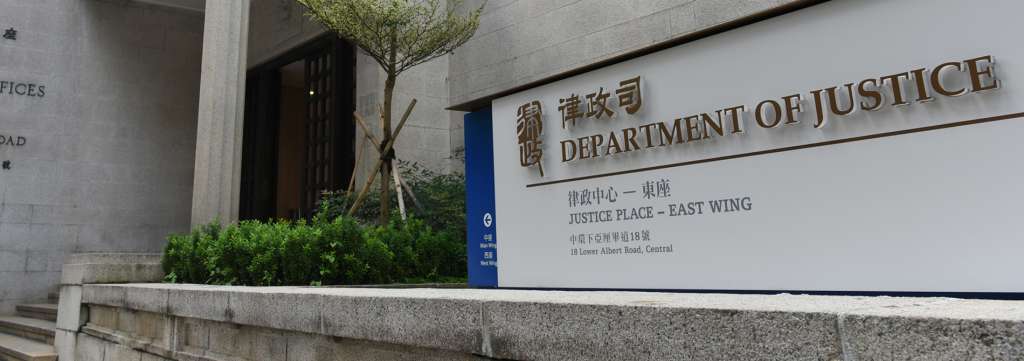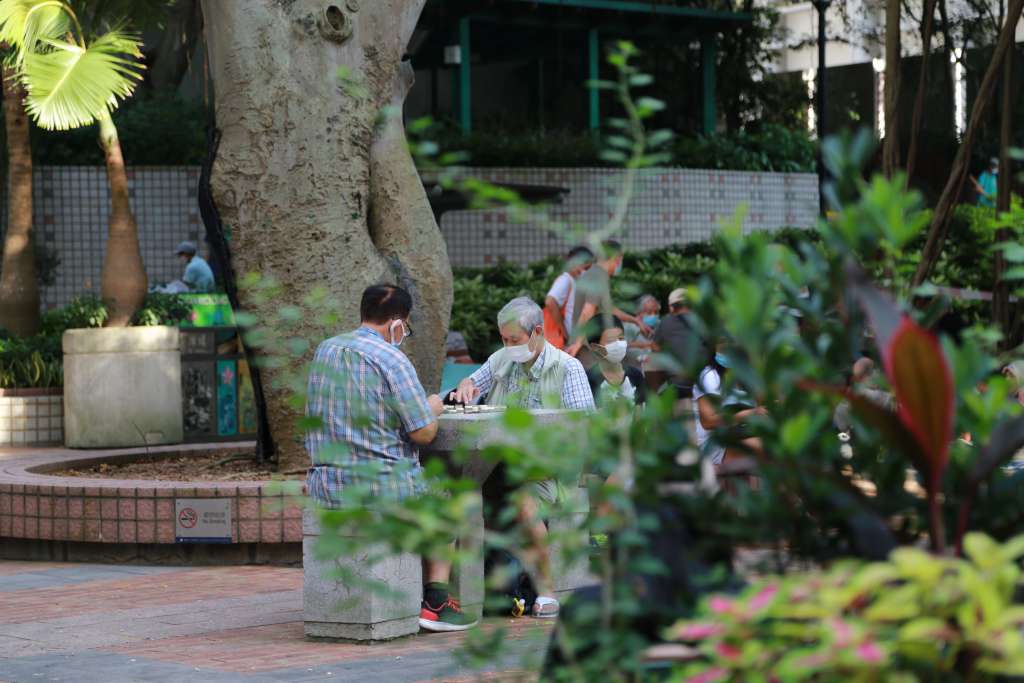As Hong Kong gets ready for a new leader on May 8, with all eyes on former police officer John Lee Ka-chiu, there’s much discussion about the presence/ absence of our ability to choose our head of state. Yet too much of conventional wisdom on that huge subject is not just factually incorrect, but the opposite of the truth. The facts are that the Hong Kong people tried to introduce an advanced system of democracy but someone stopped them – and it wasn’t who you think.
- The leadership’s widely agreed plan for Hong Kong gave local people full universal suffrage: one person, one vote
- The lawyer-designed electoral system gave citizens a more direct role in choosing their leader than voters have in UK or US
- But the entire system was thrown out by activist groups, many of which had strong links to hostile overseas sources
THERE’S ONE HUGE problem with the standard political narrative that the mainstream media and activists endlessly repeat about Hong Kong’s “crushed” aspirations for democracy.
It’s not true.
We see the narrative everywhere from anti-China activists, such as the right-wing politicians in the UK, and from others in the Western press. It goes like this: brave activists were promised full Western liberal democracy but had their dreams snatched from them by the oppressive government.
James Pomfret of Reuters, for example, summarized Hong Kong’s democratic history as follows: “Ever since Britain returned Hong Kong to Chinese rule in 1997, opposition activists have tried to bring full democracy to the city.”
These activists believed that “China would live up to its promise to one day allow universal suffrage” but Beijing plans have “all but killed off the pledge of one person, one vote,” Pomfret wrote in March 5, 2021.
But did that happen? Not at all. In fact, the version of events by Pomfret has been spun so dramatically that it has become the opposite of the truth.
For anyone who genuinely cares for the Hong Kong people, it’s instructive to look dispassionately at what really happened. For a start, it never was a case of one side fighting for democracy while the other fought against it. Not for a moment. Both sides had the same aim — until one pulled away.
MORE DEMOCRATIC THAN THE UK
In the period after the 1997 handover, Hong Kong people in the civil service devoted very significant amounts of time — more than 11 years — creating the steps that would implement full universal suffrage in the city on the south coast of China.

They had entire teams of staff working on it. The system the Hong Kong civil servants eventually drew up gave the people a higher degree of democratic participation in directly choosing their leader than the British had in their own country or the US has in its country. Yes, seriously.
In the UK, voters can elect a political party but only the party can choose a leader. In the US, an electoral college controls who can be President, not the citizens. In the Hong Kong system, voters could directly vote for the individual they wanted to be leader.
MOVING UP THE STAIRCASE
Civil servants in 2012 duly introduced the relevant bills, which were successfully passed by the required two-thirds majority of all members of the council. The next steps in the plan were to expand the Election Committee and add Legislative Council seats.
SETTING THE CALENDAR
After 2012, Civil servants spent a total of 20 months working on the next stage of the reform. This included conducting two rounds of extensive public consultations, spanning seven months.
(Contrary to what some Western journalists will repeatedly tell you, yes, this was, I repeat, the Hong Kong government working very hard to implement a one-person-one-vote system in this city.)
They eventually negotiated a watertight legal structure, which drafters said was “a universal suffrage package for selecting the Chief Executive which is constitutionally in order, lawful, reasonable and rational”.
This was a huge development, which would give Hong Kong people the chance to directly elect their leader. The people were favor, the government were in favor, and contacts across the border were happy with it.

SMALL STUMBLE
But in 2013, a stumbling block caused friction. Independence activists broke into the PLA barracks in Hong Kong. The Hong Kong people did not want a fight for independence – this had been clearly shown in survey after survey. All main political parties agreed on this.
At a country level, the authorities wanted to assure the people of Hong Kong that there was no danger of this happening. Candidates for the top job would not include separatists wanting to break up the country, they said.
This did not seem unreasonable. The requirement for a basic level of loyalty to one’s country is more or a less a default condition in nations around the world, usually expressed in the taking of oaths or pledges of loyalty. Furthermore, the recognition of Hong Kong as being part of China was declared in the very first item of the Basic Law, prepared and agreed between China and Hong Kong itself during the British period.
In Hong Kong, civil servants noted that the nominating committee dealing with the process for electing the Chief Executive could simply make sure that the candidates were not separatists. This was a theoretical issue only, and not a real-world issue at all, since all the major parties in Hong Kong had declared themselves opposed to independence.
HARSH INTERPRETATION
However, the requirement received an unduly harsh interpretation by individuals in certain groups (some of which were regular recipients of the millions of Hong Kong dollars handed out every year by a group called the National Endowment for Democracy). These individuals argued that the condition was an unacceptable limitation which meant the process was not “true” Western liberal democracy. Western and local journalists hostile to China (including the present writer) picked up this point and started echoing it as loudly as we could.
But what is more interesting than the media reaction is that there was enormous division over what to do about this among the activists themselves. Their leaders were divided. So were the public. A Chinese University survey of the public showed that some 55 percent were in favor of proceeding with the government’s universal suffrage plan, providing that satisfaction could be achieved on the composition of the “broadly representative nominating committee”.
THE CRUCIAL VOTE
But when the moment came for a vote, there were enough elements in the opposition (the people the Western media unironically likes to call “the pro-democracy camp”) to cause the whole democratic universal suffrage package to be jettisoned.
The opposition removed the entire legal staircase that would have given every Hong Kong person a chance of directly voting for the Chief Executive. The path to self-government that Hong Kong had taken literally years to build had been demolished in a single day.

A MISTAKE OR IDEOLOGICAL CORRECTNESS?
Jump-cut to debates in the universities, especially in the staff dining halls. (This writer had an office at Polytechnic University, the city’s biggest tertiary education center.) Months of discussion followed in which some people on the opposition side said that they had made a huge mistake. Others insisted that the only acceptable system of “real” democracy was one in which literally any local person on the street could be nominated as leader and voted on directly by the people. (They apparently did not reflect on the fact that the people in the US and the UK can’t directly elect their leaders, but their systems still count as “real” democracy.)
POLITICAL SCIENTISTS CONCERNED
Among university political scientists, there was growing concern about the lack of realism among some elements of the opposition. Hong Kong had almost certainly been offered the closest thing to universal suffrage possible in a Chinese territory. And they lost it, they dropped the ball.
Many academics pointed out that the actual text of the law specified that the nomination for the top job must come from a “nominating committee”. This was the rule of law, as agreed by all parties.
Why did they reject universal suffrage? Some commentators said that the opposition had demolished the staircase towards universal suffrage because it would make them irrelevant, or because they had been advised to do so by outsiders.
But while debate raged, the good, hardworking ordinary people of Hong Kong found their long-held democratic aspirations had been placed in limbo through no fault of their own – but by the actions of a minority, many of whom were backed by funding from non-local sources.

SPINNING THE STORY
All the above is history, easily checked in newspapers and academic records, or simply by talking to unbiased observers. It wasn’t that long ago.
But this real story jars sharply with the fictional portrayal of Hong Kong by the international media, in which the opposition is portrayed as having spent years working to introduce universal suffrage, and the government is portrayed as having blocked it.
Why did an international news outlet such as Reuters turn the narrative so squarely on its head? While some critics will surely say it was deliberate, others think it’s simply confirmation bias, with Western reporters assuming that the site which tried to introduce universal suffrage must be the anti-China side, and the people who rejected it must be the civil service, portrayed as puppets from Beijing.
A FINAL TWIST NO ONE EXPECTED
Yet the story has one more extraordinary twist. During the period between 2013 and today, an increasing number of economists have said that the executive-led, somewhat illiberal system of governance that some call “Asian democracy” clearly works better for places in Asia than Western liberal democracy. The evidence is all around us: see Singapore, mainland China, pre-1996 Taiwan, pre-1987 South Korea, and of course Hong Kong itself, which the British ran with executive-led governance, not liberal democracy. (Compare the development level of these places with, say, Sri Lanka or the Philippines.)
The theory was offered rather tentatively by the economist Dambisa Moyo in a TED talk in 2013 that went viral — but was reiterated more bluntly by numerous other financial experts in more recent years, as the Western model of democracy was sometimes seen to produce unhappy, polarised communities.
Not to mention the fact that the system ended up giving the keys to the world’s most powerful nuclear arsenal to a real estate salesman named Donald Trump, whose proclivities terrified even some of his own voters.
Kishore Mahubani and Eric X Li are Asian examples of people who have made the argument that Asian democracy works better for Asia (Lee Kuan Yew, of course, had made the same argument many years earlier), but many Western publications also started questioning the assumed “universal application” of Western liberal democracy. It had become obvious that one size never fits all.

Seen from that point of view, Hong Kongers in recent years have become a little more reflective about the whole issue of our failure to obtain a system of Western liberal democracy for choosing our leader in 2017, as the government had planned.
As the culture wars in the west continue to worryingly polarize societies on that side of the planet, people in this Hong Kong are coming to a surprising conclusion: by choosing a more Asian route, we may even have dodged a bullet.
Image at the top by Jimmy Chan/ Pexels
